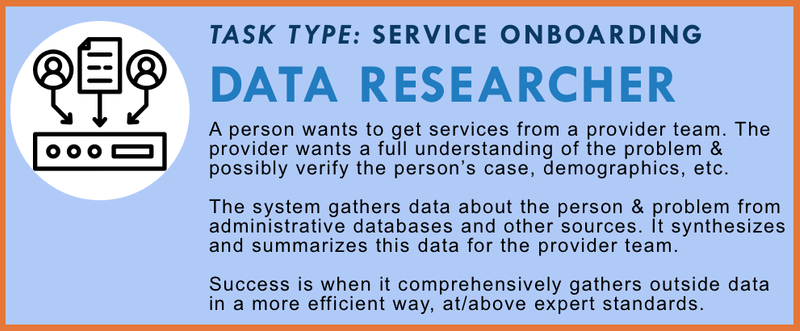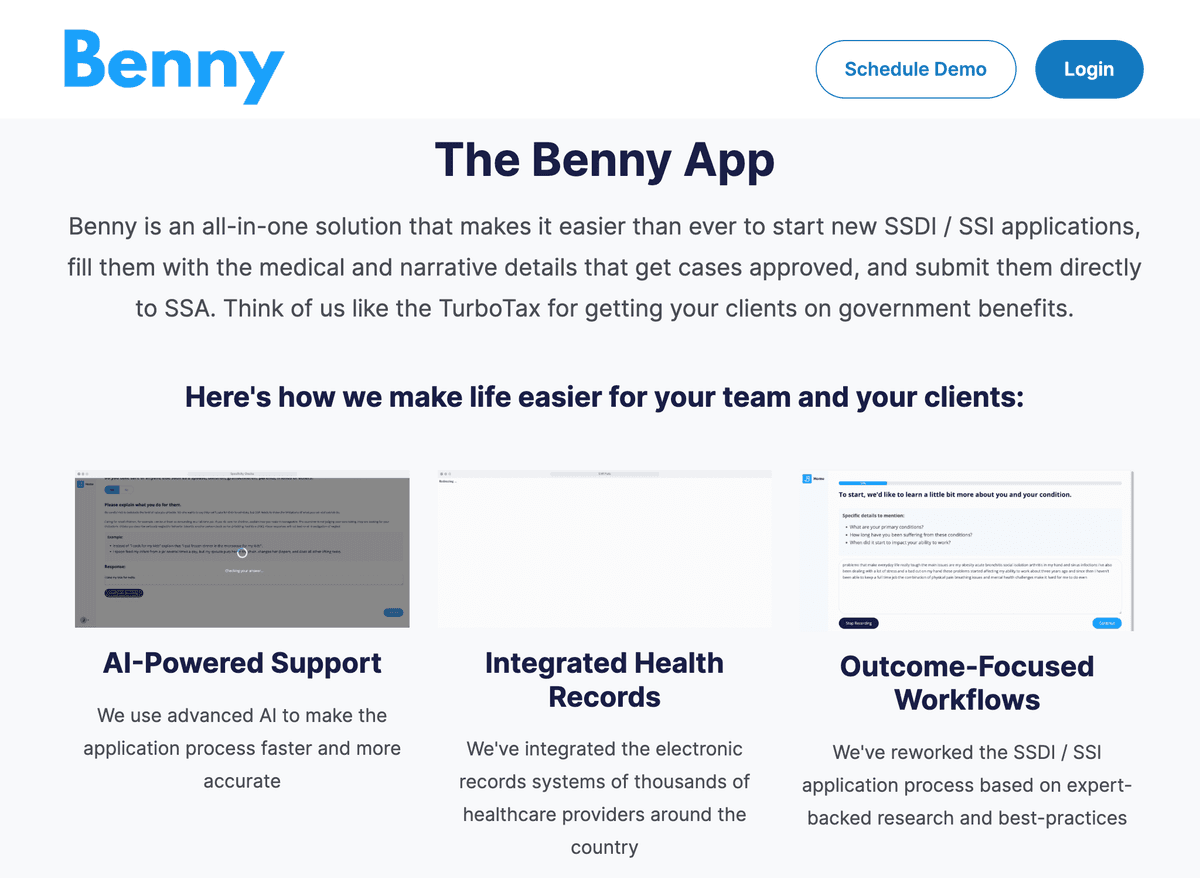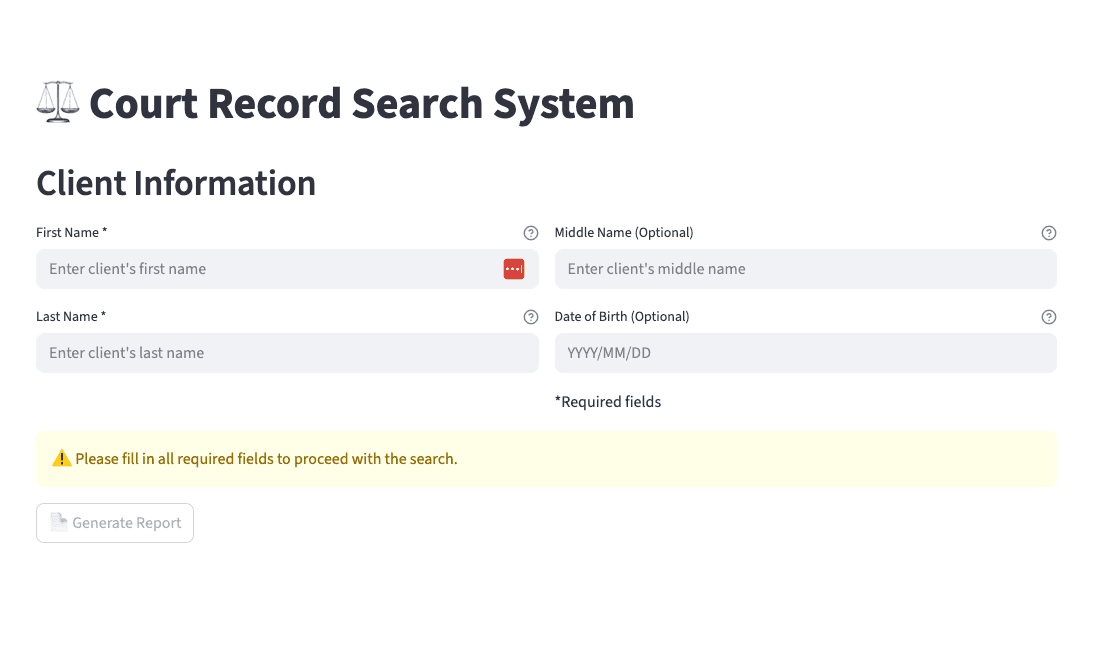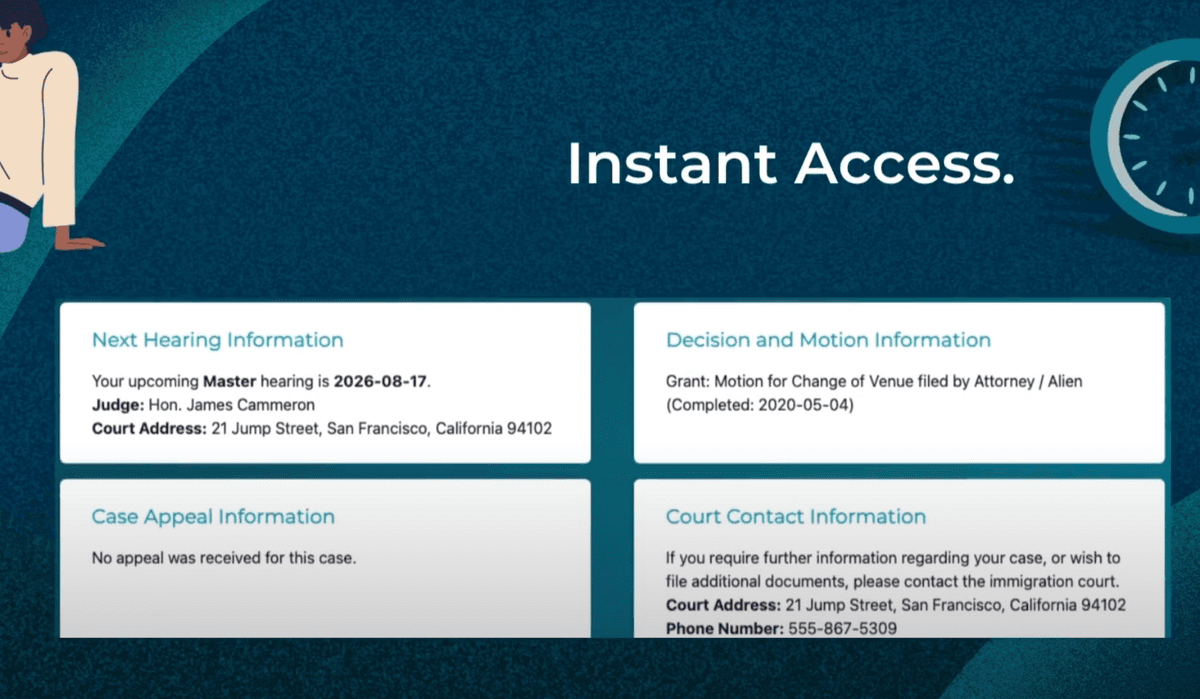Data Researcher

Help providers quickly understand a client’s situation by gathering and summarizing relevant data from external sources.
Task Description
When someone comes to a legal help or justice services provider—whether it's for housing, benefits, education, or family support—the organization often needs more than just a self-reported story. To deliver effective services, they may need to understand the person’s legal history, case status, demographic profile, or eligibility background using authoritative external data.
This task focuses on a system that serves as a data-gathering and synthesis assistant. It automatically connects to trusted external sources—such as court records, housing registries, benefits databases, school systems, or public program directories—and pulls in relevant information about the person and their legal or administrative situation. It then synthesizes this data into a structured summary for the provider team.
The output isn’t just a data dump—it’s an intelligent overview, highlighting key details like past filings, benefit status, service history, known barriers, and possible red flags. It may also include suggested follow-up steps, eligibility insights, or verification markers, saving time during intake or case planning.
This task is particularly valuable for teams supporting high-needs populations, people with complex or multi-system cases, or time-pressed staff doing triage, eligibility review, or handoffs. It ensures decisions are informed by real data—not just guesses or incomplete interviews.
Success means providers can access and understand a client’s background and situation faster and more completely—matching or exceeding what an experienced caseworker could assemble manually.
How to Measure Quality?
🔍 Data Coverage and Relevance
- Connects to all applicable administrative, court, or program databases
- Retrieves data relevant to the legal issue, jurisdiction, and user profile
- Avoids irrelevant or outdated sources unless flagged for review
📄 Data Structuring and Organization
- Extracts, formats, and labels data for easy use (e.g. case numbers, program IDs, key dates)
- Organizes information by topic (e.g. housing, income, benefits, court filings)
- Distinguishes between verified and unverified data
🧠 Synthesis and Summarization Quality
- Highlights the most critical facts for service eligibility or legal strategy
- Flags potential concerns or inconsistencies (e.g. mismatch between reported and official data)
- Provides context, timelines, and case summaries in plain language
⏱️ Efficiency and Workflow Integration
- Reduces time spent on manual research and data entry
- Outputs are ready to be inserted into forms, intake notes, or internal records
- Integrates with intake, case management, or triage systems
🔐 Security, Consent, and Compliance
- Clearly documents source and timing of data pulls
- Complies with privacy laws and organization’s data-sharing policies
- Flags situations where client consent or authorization is needed
💬 Provider Review and Customization
- Allows provider to edit, accept, or reject auto-gathered data
- Explains why each piece of information was pulled and how it’s relevant
- Supports note-taking or annotation during review
Related Projects

Benny the Benefits Navigator
An AI-enabled platform that streamlines Social Security Disability Insurance (SSDI) and Supplemental Security Income (SSI) applications, to reduce completion time and improve accuracy, completeness, and approval rates.

Fines & Fees Data Researcher
An AI-powered agent that helps legal aid teams retrieve and organize a person's fines and fee data from across Oklahoma court dockets, to produce reports for the teams as they work on getting criminal justice debt waived.

Pathfinder
An AI-powered case insights and alert system that helps immigration attorneys, nonprofits, and asylum seekers track proceedings, avoid missed deadlines, and streamline work authorizations.